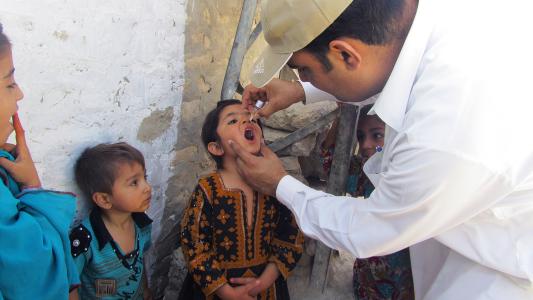Pfizer’s antiviral pill for COVID-19 reduced the odds of hospitalization or death by 89%, among high-risk patients, according to early results from a phase 2/3 trial. The company is now seeking an emergency use authorization (EUA) for the drug.
If the FDA approves the drug, will it be the breakthrough that finally ends the pandemic?
The challenge: Antivirals are drugs that interfere with a virus’s ability to replicate, slowing it down while the immune system clears the infection. Several companies have been developing antivirals for COVID-19, and the FDA has already approved one: remdesivir.
The problem with remdesivir is that it must be administered intravenously in a healthcare facility over the course of several days. That means most of the people who receive it are already hospitalized.
But antivirals are most effective when administered soon after an infection takes hold, when there isn’t a ton of virus in the body yet, so an antiviral pill that could be taken at home as soon as a person tests positive has been something of a holy grail in the battle against COVID-19.
Pfizer’s antiviral pill: Pfizer’s trial involved 1,219 participants, with mild-to-moderate symptoms and at least one condition that put them at high-risk of developing severe COVID-19 (obesity, advanced age, etc).
Half of the participants received placebos. Those in the treatment group took six pills each day for five days, including ritonavir (an old drug used to treat HIV), which helps Pfizer’s antiviral work longer.
No one who was treated by Pfizer’s antiviral pill died, but 17 people in the placebo group did.
When taken within three days of the first symptoms, the pill reduced the risk of hospitalization or death by 89% through four weeks. There were 27 hospitalizations and 7 deaths in the placebo group and just 3 hospitalizations and 0 deaths in the treatment group.
When started four or five days after symptoms appeared, the risk was cut by 85%, with 41 hospitalizations and 10 deaths in the placebo group compared to 6 hospitalizations and 0 deaths among those treated.
“The results are really beyond our wildest dreams,” Annaliesa Anderson, a Pfizer executive who led the drug’s development, told the New York Times.
Apples to apples? A new antiviral pill developed by Merck, which is currently being evaluated by the FDA and was just authorized in the U.K., cut hospitalization or death by 50% in its clinical trial.
Both drugs were tested among high-risk, unvaccinated patients, but because the patients were recruited differently, the results may not be directly comparable.
Pfizer expects to produce more than 180,000 courses of its antiviral in 2021 and more than 21 million in the first half of 2022.
The two pills also work differently. Merck’s pill inserts errors into the coronavirus’s genetic code that eventually cause the virus to break down. Pfizer’s antiviral pill is what’s known as a “protease inhibitor” — a class of drug that has been used to treat HIV and cure hepatitis C — that binds to a specific coronavirus protein to prevent it from replicating.
The supply will also vary, initially: Pfizer says it expects to produce more than 180,000 courses of the drug by the end of this year and more than 21 million in the first half of 2022.
Merck, meanwhile, is prepared to produce 10 million courses by the end of 2021 (the U.S. has agreed to buy 1.7 million, if the pill’s authorized). Merck has also agreed to license its antiviral pill’s formulation for free to companies for distribution in low- and middle-income countries.
The big picture: All signs point to both Merck’s and Pfizer’s antiviral pills receiving EUAs for use in the U.S.
That means we should soon have several highly effective vaccines (one authorized for children as young as five), three antiviral treatments (two easily administered soon after diagnosis), three monoclonal antibody treatments, and a life-saving steroid treatment for those with severe COVID-19.
So why are America’s case and death rates still so high? Why isn’t the pandemic, if not over, at least showing signs of winding down?
The bottom line: Unfortunately, COVID-19 is looking more and more like something we’ll be dealing with for a long time.
Less than 60% of the U.S. population is fully vaccinated, and even those who are now face the prospect of waning immunity and new evolving variants.
We have the tools we need to keep COVID-19 in check — if we are willing to use them.
Boosters and tweaked vaccines will help, but they’ll take time to develop and distribute, during which the virus will continue to spread — especially if Americans continue to resist masks and social distancing.
There’s also been persistent issues with making, distributing, and administering treatments like monoclonal antibodies and remdesivir, as well as regulatory delays in approving them, which will likely be repeated with Merck’s and Pfizer’s treatments.
While the virus is likely here to stay, the race for treatments and vaccines is finally beginning to give us the tools we need to keep it in check — if we are willing to use them.
We’d love to hear from you! If you have a comment about this article or if you have a tip for a future Freethink story, please email us at [email protected].






